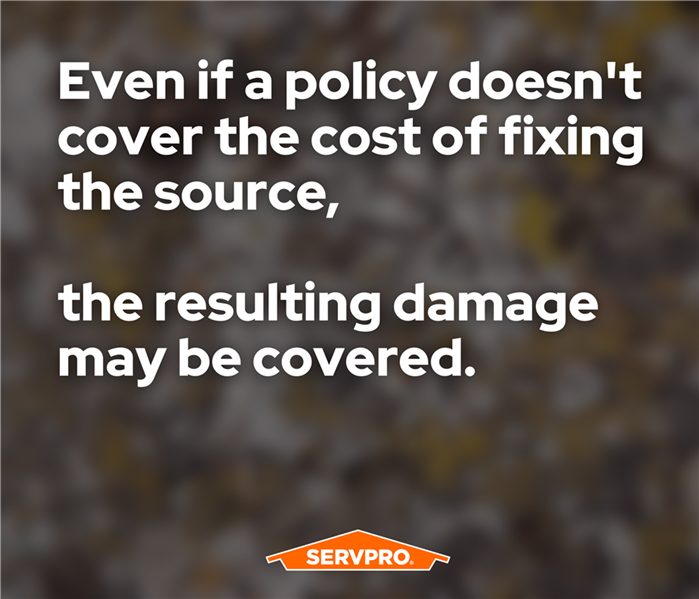Does Your Homeowners Insurance Cover Mold Damage?
6/27/2022 (Permalink)
 Perils covered by homeowners insurance policies vary. SERVPRO of South Orlando cleans microbial contamination.
Perils covered by homeowners insurance policies vary. SERVPRO of South Orlando cleans microbial contamination.
The perils covered by homeowners insurance policies vary depending on the insurer.
Mold damage can be costly and happen anywhere, so several insurance companies have restricted or eliminated coverage for this risk under standard policies. If you are concerned about fungus growth at a residence, try to identify the problem's source first, then check your policy for mold coverage.
The Cause of Mold Damage Matters
Restoration experts commonly refer to mold as secondary damage, as fungal growth typically results from direct water damage.
Insurers are more likely to cover mold damage that results from one of the following covered incidents:
- Appliance leaks
- Broken or burst pipes
- Pipe leaks
Even if a policy does not cover the cost of fixing the problem, the resulting damage may be covered. Check your policy and contact an insurance agent or adjuster.
3 Ways Insurers Limit Mold Coverage
Many homeowners insurance providers have removed or limited the amount of coverage for fungus growth because it is a higher risk peril. Since mold can grow practically anywhere, anytime in the right conditions—it’s not exclusive to one geographical location. Because of this an insurer may restrict coverage in these ways:
- Exclude mold damage completely
- Only cover microbial testing or cleanup
- Refuse coverage on properties with a history of mold
Read your policy carefully to determine whether there are any conditions under which mold is covered. If mold is not covered, you may want to add an endorsement.
What Is an Endorsement?
It may be possible for policy holders to pay for limited mold coverage. Ask your insurer whether any endorsements are available. This option may be costly, especially if your residence has a history of mold.Homeowners should determine the limitations of their coverage and decide whether to obtain additional mold insurance.
Paying for remediation out of pocket can be very expensive. The best way to prevent mold growth is to mitigate water damage and potential damage. Don’t be caught without the right mold insurance.




 24/7 Emergency Service
24/7 Emergency Service